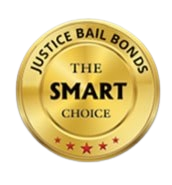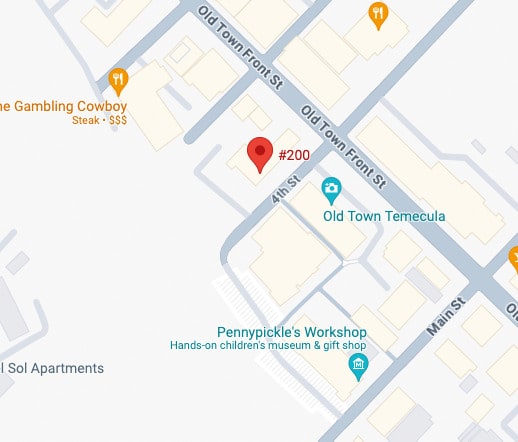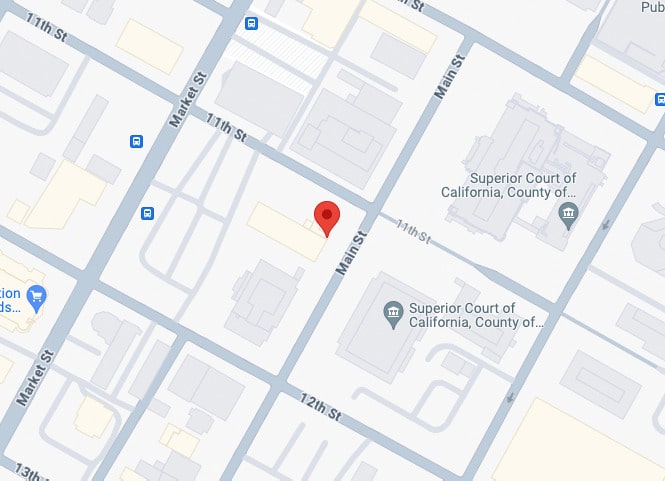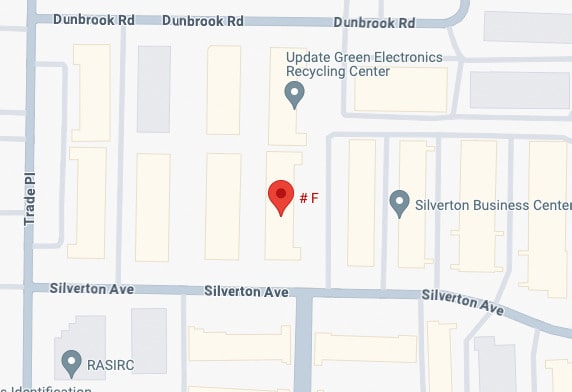Bail bonds play a crucial role when someone is arrested. They offer a means to secure an individual’s release from custody while awaiting trial. After an arrest, an individual could face the prospect of remaining in jail until their court date, which can be a substantial period. It can range from weeks to months.
Bail bonds provide a solution by enabling individuals to pay a fraction of the total bail amount to a bondsman. The bondsman then furnishes the full bail amount to the court as a pledge that the individual will attend all required court hearings. This arrangement allows the arrested person to avoid prolonged incarceration and continue their daily life and legal proceedings outside the jail.
It is advisable to contact a Boulevard bail bonds service to expedite the release process and minimize time spent in jail. At Justice Bail Bonds, we provide bail bond services to enable those arrested to prepare for upcoming court hearings while under the guidance of legal counsel, all without the constraints of custody.
Bail Process
The bail process involves critical areas, from when you are arrested to your release as soon as you post bail. Here is a detailed look at each stage:
-
Booking
After being arrested, you will be taken to a law enforcement facility for booking. This includes recording your personal details, charges, and belongings. Expect procedures like background checks, fingerprinting, and photographs.
-
Initial Appearance
You become fully aware of the charges against you and can enter a plea during your arraignment. The arraignment is the first court appearance following an arrest.
A judge or court official formally outlines the charges filed against you while ensuring that you know your legal rights, including the right to remain silent, the right to legal representation, and the right to a fair trial.
When it comes to entering a plea, you are presented with three fundamental options:
- Guilty plea — This option is exercised when you accept guilt for the charges, effectively admitting to the alleged offenses.
- Not guilty plea — If you believe in your innocence and contest the fairness of the charges, you have the prerogative to enter a not guilty plea. This signals your intent to dispute the charges and proceed to a trial phase.
- No contest (nolo contendere) plea — In specific circumstances, you can take a plea of no contest. Similar to a guilty plea, it does not challenge the charges. However, it is advantageous when admitting guilt could have legal implications.
Notably, during the arraignment, one of the pivotal decisions rests with the judge: determining the bail amount. This stage significantly impacts whether you will be temporarily released from custody while awaiting subsequent court proceedings.
In the process of ascertaining the appropriate bail amount, the judge assesses various factors, including:
- Severity of charges — The seriousness and nature of the charges bear substantial weight in setting the bail amount. Graver charges often result in higher bail sums.
- Criminal history — Your prior criminal record undergoes scrutiny to gauge your past behavior and any previous convictions. A history of missed court appearances or prior legal entanglements can influence the bail decision.
- Flight risk — The judge evaluates the likelihood of you attempting to abscond or failing to attend future court hearings. If there is perceived flight risk, the bail amount could be increased.
- Community ties — Your connections to the local community, encompassing family, employment, and residence, are considered. Robust community ties can be a favorable factor in determining bail.
- Public safety — The judge also considers the potential risk posed to public safety if you are released. In cases where concerns about potential harm to others emerge, the judge could increase the bail amount or combine it with specific conditions.
Despite a bail schedule in each California county, which provides preset bail amounts for various offenses, judges exercise discretion when determining bail amounts.
-
Payment Options
Once your bail amount is determined, you'll have various options to secure your release:
Cash Bail
You can pay the full bail directly to the court using cash or a cashier's check. If you fulfill your obligation by attending all your court hearings, the court will refund this amount upon the conclusion of your case.
Boulevard Bail Bonds
If coming up with the entire bail amount is financially challenging, you can reach out to a Boulevard bail bonds service. They will charge you a non-refundable fee, typically about 10% of the bail amount, and post the bail on your behalf.
Property Bond
You can use valuable assets like real estate as collateral for your bail in specific circumstances. However, if you fail to appear in court, the court could take possession of the property.
Release on Recognizance (OR)
The judge could release you without requiring bail for minor offenses. This release option is also available for individuals deeply connected to their community. In this scenario, you commit to attending all scheduled court hearings, and the court relies on your commitment.
After bail is settled or an O.R. release is granted, you are free from custody while awaiting court hearings.
Bail Forfeiture
If you are released on bail and miss your scheduled court hearings, the judge will issue a bench warrant for your arrest. Law enforcement gets the green light to track you down and bring you back to court. Their main aim is to ensure you show up for your court dates.
If you continue evading court appearances, the situation escalates. The court can kickstart the bail forfeiture process. In plain terms, they can declare your bail money or collateral as forfeited. Therefore, you lose the money or property you used to get out of jail.
Bail forfeiture affects individuals differently depending on how they secured their pre-trial freedom.
You will lose the money if you pay the full bail amount in cash or with a cashier's check and then miss your court date. The courts will only refund the amount if you honor your court dates.
If you went the bail bondsman route, the situation would be different. You paid them a non-refundable fee, typically around 10% of the bail amount. But if you are a no-show at court, the Boulevard bail bondsman will end up losing the value of the bond to the court.
They will then knock on your or your co-signer's door to recover the sums. In most cases, they could repose the collateral you used in the bail bond agreement and dispose of it to recover the lost sum and any incidental costs.
Failing to attend court proceedings can be costly if you stake valuable property or assets to secure bail. The court could seize those assets and even auction them off to cover the forfeited bail amount.
However, you do not risk losing your property or cash if the judge releases you without posting bail through an O.R. release. However, skipping court can still affect you. You could face legal consequences and a bench warrant. So, even without the financial hit, you risk facing additional release terms, possibly being released on bail or re-incarcerated.
Why You Should Consider Using Boulevard Bail Bonds to Secure Your Release
Boulevard bail bonds offer value to defendants and their families, especially since being arrested is not a planned occurrence. You, too, can enjoy several benefits when you opt to secure your pre-trial freedom through posting a bail bond. Some of them include the following:
-
Financial Relief
Bail bonds offer financial relief by requesting only a fraction, typically about 10%, of the total bail amount. This approach notably eases the immediate financial strain, making it far more manageable than paying the full bail sum in cash upfront.
Opting for a bail bond allows you to safeguard your financial resources for other critical necessities, like securing legal representation and covering daily living expenses. This choice contributes to a more seamless pre-trial process while ensuring financial stability.
-
Preservation of Assets
Using a bail bond eliminates the need to use valuable assets like savings, property, or personal belongings as collateral for bail. This strategic choice acts as a protective shield, safeguarding your assets from the potential risk of loss.
However, if you decide to use your property as collateral for a bail bond and then fail to appear in court as required, there is a substantial risk of losing that property. By offering property as collateral in a bail bond agreement, you essentially provide it as a guarantee to cover the bail amount if you do not meet your court obligations. In the unfortunate event of a court no-show, the bail bond company will take possession of the property and potentially sell it to cover the forfeited bail amount.
Many individuals opt for bail bonds, as they offer a more secure and manageable financial alternative. Using a bail bond minimizes the risk of losing valuable property or assets if there is any uncertainty about attending court hearings.
-
Expedited Release From Custody
Bail bondsmen act swiftly to hasten your release from custody. This significantly diminishes your time behind bars. This prompt response allows you to swiftly return to your daily routine and legal proceedings, reducing disruptions and facilitating a more streamlined pre-trial process.
-
Co-signer Option
Having a co-signer becomes a valuable solution when you face challenges in posting bail independently. A co-signer steps in to share the responsibility of ensuring your presence at court hearings, simplifying the process of securing your release.
A co-signer can be a family member, friend, or acquaintance who agrees to take responsibility for you if you have been released on bail. By co-signing a bail bond, they commit to ensuring your compliance with all court requirements, including attending every scheduled court hearing.
If you fail to appear in court, the co-signer could be held financially responsible for the entire bail amount and any additional fees incurred by the bail bondsman. Co-signers play a pivotal role in assisting defendants in obtaining their release from custody, mainly when they cannot post bail on their own.
A Bail Hold
A "bail hold" refers to a situation where your release from custody is temporarily delayed due to concerns about the source of the funds or consideration used for posting bail. This hold is only invoked under specific conditions, such as:
- When a peace officer submits a sworn declaration indicating probable cause to believe that the bail consideration was acquired through illegal means.
- When a prosecutor presents a similar sworn declaration with the same belief and
- When the magistrate or judge themselves have probable cause to suspect that the source of the bail consideration involved illegal activities.
Once a hold is initiated, you cannot be granted bail until the question of whether the bail funds were obtained unlawfully is addressed. This determination is reached through an evidentiary process in which you are responsible for proving that none of the bail considerations resulted from felonious activities. If you successfully demonstrate this, the hold is lifted, and you become eligible for release on bail.
The purpose of a bail hold, as outlined in PC 1275.1, is to ensure that the funds or consideration used for your bail are not connected to criminal actions.
During a bail hold hearing, also known as a PC 1275 hearing, you can present evidence to demonstrate that the funds or consideration used for bail were not feloniously obtained. To support your case and show that the source of bail funds is legitimate, you can consider presenting various types of evidence:
- Financial statements, bank records, and tax returns — These documents should indicate that the money used for bail was acquired through lawful means, for example, employment income, investments, or savings.
- If your funds come from employment income, provide pay stubs or wage statements showing your regular, legal income. This helps establish that the money used for bail was earned legally.
- If the property is involved in the bail process, offer documentation that proves your ownership and the legal acquisition of the property. This could involve property deeds, titles, and mortgage records.
- If you have taken out a loan to cover bail, provide a legally executed loan agreement specifying the terms, including repayment. This demonstrates a legitimate source of funds.
- You could have witnesses like business partners, employers, or financial advisors who can vouch for the legitimacy of the funds. They can confirm that the money was not acquired through illegal activities.
- Valuable letters of reference from reputable individuals who can attest to your character, reputation, and lawful financial activities.
- Relevant legal documents to bolster your case if legal settlements, inheritances, or court judgments contributed to the funds.
- Documentation of investments — If the funds originate from investments, supply records of investment transactions and statements, highlighting their legality.
- If the bail funds resulted from asset sales or business transactions, offer receipts, invoices, and pertinent business records to demonstrate their lawful nature.
Collaborate closely with your attorney to compile and effectively present this evidence during the bail hold hearing.
What If I Cannot Afford to Pay the Bail Bondsman's Fee in Full? Can I Still Secure a Bail Bond?
If you find it challenging to pay the complete bail bondsman's fee upfront, many bail bondsmen are willing to collaborate to create a payment plan that makes the process more manageable. This structured payment plan allows you to secure your release from custody by paying a portion of the fee initially and making regular payments until the 10% charge is fully settled.
This level of flexibility can prove exceptionally beneficial. It ensures you can regain your freedom without overwhelming financial burdens. Nevertheless, engaging in a thorough discussion with the bail bondsman regarding the terms of the payment plan remains imperative. Doing so ensures that you understand all the particulars before moving forward.
Boulevard Jail and Courthouse Information
Boulevard Jail Information
San Diego Central Jail
South Bay Detention Facility
ADDRESS:
Courthouse Information
Superior Court of California - County of San Diego
Central Courthouse
Contact an Experienced Bail Bondsman Near Me
Justice Bail Bonds is here for you around the clock, 24 hours a day, seven days a week. Legal issues do not keep regular hours, and arrests can happen anytime. Knowing that bail bond services are available at all hours offers you peace of mind and ensures swift assistance precisely when you need it most.
Furthermore, Boulevard bail bonds present a financially sensible alternative to shelling out the entire bail amount upfront in cash. Instead, they require just a fraction, about 10%, of the total bail. This significantly reduces the immediate financial burden, allowing you to secure your release without emptying your wallet.
Therefore, get in touch with us at 714-541-1155 if you require assistance. Our round-the-clock availability, budget-friendly solutions, and experience are invaluable when navigating legal matters and striving for a swift release from custody. Feel free to reach out to us and let us help you secure an expedited release from custody.









